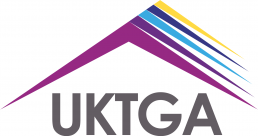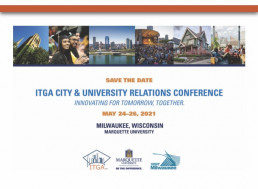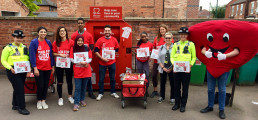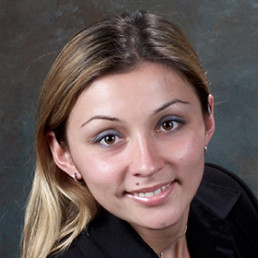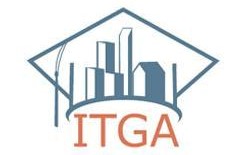UKTGA Proud To Be Working With LINK Strategic Partners
The UKTGA is proud to work with our partners at LINK Strategic. Having first met Michael Akin, President over a decade ago, we have seen our global connections go from strength to strength.
LINK Strategic Partners is a full-service communications and engagement firm built on a proud legacy of community and civic-based work for causes that matter. By understanding and respecting the communities in which we operate, we help municipalities, school districts, higher education institutions, government agencies, and other organizations create and apply the right tools and strategies to translate challenges into opportunities for hyperlocal success.
For more information about LINK and the amazing work they do across the US and UK, visit:
LINK Higher Education Planning UK
Virtual Forum on 'Off Campus Management- Looking Ahead'
Our UKTGA Virtual Forum on ‘Off Campus Management’- Looking Ahead’ took place on 29th July.
Thank you to those of you who joined us!
There was a great deal of insightful discussion about plans in place to manage off campus issues in the coming months. We were also lucky enough to have colleagues from the ITGA join us to discuss their Certificate Programme.
If you would like a summary of the discussion points captured, and some great examples of initiatives being delivered, please do get in touch with poppy.humphrey@manchester.ac.uk
All the best
Poppy
The Trials and Tribulations of Tenancy Turnover.
Hi. My name is Claire. I’m Community Engagement Manager at the University of Birmingham, and it has been 4 weeks since my last Tenancy Turnover.
I jest.
But, really.
What an end to the Academic Year.
I know that all of my fellow Town and Gown practitioners across the lands will have felt it too. The ups and downs, all culminating in a student body who had been cooped up for most of the year desperate from some semblance of normality, being freed via the opening up of pubs and other venues. Just in time for half of them to contract corona virus or be in close contact with someone who had. And, just in time to have self-isolation periods that stretched right across that most odd of occurrences - tenancies that end on one day, and begin again on the next, thus sparking what would normally be the ‘borrowing’ of shopping trollies from every Aldi and Lidl (other supermarkets are available), frantic movement of goods and belongings from one street to another whilst working out what to do with that 10ft blow up Rick Astley and 3 person Tortoise costume, and how to get that red-wine-tinged-vomit-stain out of the cream front room carpet so that you don’t lose any of your deposit.
It’s been a hard year for students, landlords, Universities and, well, everyone really.
This culminated in the perfect storm that was the last 2 months of the 20/21 cohort, seeing:
• Students who had hardly lived with one another due to lock downs, suddenly having to navigate shared living and all that comes with it.
• Non-student residents who were scared stiff of the potential influx of covid-ridden students descending at various points from across the lands for one last ‘hoorah’ after the wash that has been the last 18 months.
• Communities who have not learned to live with one another over the last 2 years, suffering from a serious lack of cohesion which has made navigating the conflicts of mixed communities harder to resolve.
• House parties that have actually been garden parties because, covid regs, and therefore have been noise makers due to sound travelling.
• Large gatherings in public spaces, and the resultant community complaints adding to the ‘heat’ level of everything.
• A general sense of students feeling quite hard done by, which translated in some cases to a bit of entitled behaviour which, frankly, just got everyone’s backs up.
• MASS self-isolation over tenancy turnover due to a lag following the end of year parties, with many students unable to move, and some landlords trying to claim for extra days of rent, deep cleans, and even hotel costs for incoming tenants who were unable to move in to their new homes and so had nowhere to go.
It’s been a summer of firefighting to be honest and, whilst the mandated ‘debrief’ sessions have taken place, much of the learning will require more deep reflection than I have space for here, and so I will just offer a couple of things from Brum – stuff that helped, and stuff that we need to work on.
Stuff that helped:
• Great relationships with our local councillors
• Virtual Community Town Hall events that we launched 14 months ago to keep the community informed of what was happening came in to play strongly, and gave us an added layer of comms to use
• Fabulous co-working with the Guild of Students and the programmes that we fund but they run – such as community wardens
• A change in UoB regulations which allows us to take firmer action on persistent cases of ASB Off Campus.
• Massive support from the top down for the work going on
• UKTGA Town and Gown connections were invaluable in terms of support and shared expertise
Stuff that we need to work on:
• PRACTICAL detailed planning in conjunction with the local council in terms of how to rid the area of waste post-turnover in a strategic way.
• Dealing with the ‘bin divers’ who swoop in after students have put rubbish out in the correct way, and proceed to open up bin bags and strew waste everywhere, making look as though the students are totally at fault.
• Why, oh why, oh why, is there not a better solution that the utter MAYHEM of a 48 hour tenancy turnover period?!
• Preparations for welcoming back the 21/22 cohort who will, for the most part, have limited experience of shared living, and so will bring with them a host of support and education needs in order to maintain some level of community cohesion.
I know that the above might not be particularly deep thoughts, but if you read them and think ‘at least it’s not just me’, then my job here is done. I see you my friend. I feel your pain and I validate your frustration.
Onwards.
By Claire Bent
UPP Foundation Bulletin 29.07.2021
UPP Foundation Bulletin 29.07.2021
Hello and welcome to the second UPP Foundation bulletin.
In 1960, Kingsley Amis criticised “the pit of ignorance and incapacity into which British education has sunk since the war”, arguing that “more will mean worse.”
The history of higher education in England is littered with these regular bouts of introspection. This is not surprising. Universities play a significant role in shaping our society and economy – and have done for decades, if not centuries. Institutions that mould who we are as people inevitably face scrutiny and challenge.
Today, the debate about the role of universities in society is, again, hotly contested, with signs that parts of government and Whitehall are more sceptical of universities than they have been for decades.
To change this perception and build a stronger case to government (of any political hue) we need to broaden our sector’s appeal to the people who matter to them – the public. That is why we worked with the Higher Education Policy Institute (HEPI), supported by Public First (who conducted the polling), to publish a comprehensive report detailing public attitudes to higher education in England.
Our hope is that the report is used as a catalyst for deep discussions within universities and the wider sector on how to persuade the public of the value of higher education in England and beyond. While there is much to be optimistic about in the findings – particularly the high demand for a university education – what is striking is the high level of neutrality towards universities. History shows we will always face some scrutiny and challenge but it is vital we grow public support in the years ahead, as that's the best defence against a challenging political and policy environment.
In this edition we also have the latest from the Student Futures Commission, which held its second oral evidence session on wellbeing and the wider student experience earlier in the month. We also share insights from elsewhere, including the brilliant news that 32 universities have joined our partners Student Minds' University Mental Health Charter.
Do please forward our bulletin to your friends and colleagues (and get them to sign up!). Feedback is always welcome - email us at info@upp-foundation.org
Have a happy Thursday.
Richard Brabner, Director, UPP Foundation
Public Attitudes to Higher Education
Seven Lessons from the UPP Foundation & HEPI Polling Report
Last week, the UPP Foundation and HEPI published a major new report on public attitudes to higher education. The survey was conducted in February and asked over 2,000 adults in England about universities as institutions, the value of degrees and campus culture.
The report received a huge amount of national coverage, including The Times, The I Paper, Independent, and Daily Telegraph. This tended to focus on the finding that public support for changes to 'decolonise' the curriculum depend on how they are framed and presented.
There is a huge amount of rich data in this report and we hope you find the results as fascinating as we do. But given the extensive nature of the survey there are a number of other results that remain a little under the radar. So with Nick Hillman, Director of HEPI, we penned a blog on seven other key points which emerged from the polling. In summary we found that:
1. Four times as many people regard universities’ impact as positive than those who see it is as negative but there are high levels of neutrality towards universities throughout the survey.
2. Support for higher education is split between class, age and vote - with working-class, older and Leave/Conservative voters less supportive.
3. Those who are more negative about universities tend to have had less contact with them, so the polling underlines the importance of engagement, particularly with those traditionally less likely to attend university for study.
4. When people are thinking about themselves or their families, they are more positive about degrees than when they are thinking about participation generally.
5. The public are inconsistent about the purpose of degrees. A majority of the public think that 'studying topics which do not clearly link to a profession is a waste of time' AND 'enjoying a subject is good enough reason to do it'.
6. Research is seen as the thing universities are most important for, and a majority of the public respond strongly to national impact.
7. Via a segmentation analysis we find six distinct opinion groups in the country and a large minority which are disengaged.
Student Futures Commission
“We’re going to have a group of students, both new and returning, coming to university in September, who have spent the majority of their studies in extreme uncertainty”
Mhari Underwood, The Student Room
Student Experience and Wellbeing Evidence Sessions
We recently held our second oral evidence session which investigated the student experience, covering mental health and student wellbeing. The Commission sensed that belonging – with an emphasis on social connections and lived experience – sits front of mind when exploring the student experience, and wanted to look further at how this has been disrupted by the pandemic, and how we can improve it next year.
Commissioners questioned key experts over two separate sessions; the first focused on wellbeing and student support, with the second on the wider student experience and engagement. Witnesses said that:
· It was clear that many students felt that they had lost a sense of control over their university experiences. Mhairi Underwood, Head of Student Voice and Diversity at the Student Room said that less than half of current students they surveyed felt like they had a support network they could reach out to or that they knew how to connect with their classmates.
· Everyone is going to need help with an ‘induction’ next year. Many second year students currently only have a little more experience of ‘on campus’ life than the incoming first years. This ties in with the recent research done by the Brilliant Club for the Commission on the need for a ‘long and skinny’ induction model – and the need to extend activities for much more than a week or two at the beginning of term.
· A whole university approach to student mental health and wellbeing is vital to getting the support right. As Dominic Smithies, Student Voice and Equality Lead from Student Minds noted, many issues around wellbeing stem from anxieties about other practical and structural parts of a student’s experience.
· Encouraging participation in campus life is a way to give students back a sense of agency. Dr Camille Kandiko Howson, Associate Professor Education at Imperial College London, highlighted the important role that departmental student wellbeing officers have played in connecting students to resources and support.
· As the country starts to build back after the pandemic, universities and students will have a key role to play in this. There was a clear appetite from the witnesses to embed engagement into curriculum delivery. Professor Jonathan Grant outlined the role service-led learning played across the curriculum at KCL, ensuring that all students had the opportunity to test out content learned in the classroom by applying it in the community.
· This activity can also clearly help students to build the skills they need for future careers, particularly if they have struggled to do this via internships or work experience. Hattie Tollerson, SU President at London South Bank University, outlined the success of LSBU Students’ Union in re-tooling student societies to focus on professional skills.
Professor Juliet Foster: “It’s about getting this cohort involved in what the world will become”
Professor Juliet Foster, Dean of Education King's College London and Student Futures Commissioner, reflects on the key themes to emerge from the session. Read the full transcripts from the sessions (Part One: Student Support and Wellbeing and Part Two: Student Experience and Engagement) or catch up on our YouTube channel
Articles from the Commission
· Students' interests in a shared recovery - Hattie Tollerson, outgoing SU President at London South Bank University, and Ben Vulliamy, Chief Executive of University of York Students’ Union, reflect on the evidence they shared with the Student Futures Commission
· Let’s seize this opportunity to break down barriers faced by disadvantaged students - Rae Tooth, Chief Executive of Villiers Park, argues that the pandemic presents an opportunity to build a system of higher education that works for disadvantaged learners
· Case Study: 100 days of discovery - Rachael Collins, Student Success Manager at the University of Liverpool outlines their programme for the first 100 days of a Liverpool education
· How can we facilitate the student transition to university post-Covid? - Research led by the Brilliant Club for the Commission discuss some of the key issues related to transition, and how to support students with both academic and non-academic challenges.
What we've been reading elsewhere
It is really good to see an initial 32 universities sign up to Student Minds' University Mental Health Charter programme. Published in 2019, the Charter Framework provides a set of evidence-informed principles to support universities across the UK in making mental health a university-wide priority. The Charter Programme brings together universities committed to working towards these principles to share practice and create cultural change within their institution. As the initial funder of the Charter we are really pleased to see the impact it is having, and strongly recommend other universities who are considering the programme to go for it. The team at Student Minds are a pleasure to work with, and we'd be delighted to link our sector contacts up with them.
Sheffield Hallam University - host of the Civic University Network founded by the UPP Foundation - have just published their Civic University Agreement. Their Agreement identifies four priority areas for their civic role: the economy and jobs, education and skills, health and wellbeing, and community and regeneration. It is great to see the CUA endorsed by Dan Jarvis MBE, the Mayor of South Yorkshire, alongside a range of leaders from local government, the NHS and further education. Several universities have now published their CUA, including the joint University of Nottingham and Nottingham Trent University Universities for Nottingham Agreement published last year. Let us know when your university publishes its CUA and we will share with our network!
Mark Cover from dataHE has written an important piece for Wonkhe which shows the supply-demand balance clearly shifting against applicants, with a reduction in offer rates and applicant choice for the first time since 2012. With the anticipated rise in demand in the 2020s he says "these patterns could well be a foretaste of a much less favourable world for applicants, and one where it gets harder for universities to increase access for underrepresented groups". Cover warns that "pressure on places can only make improving access harder". This is something we - and I'm sure the entire higher education community - will be watching closely.
With the Olympics now underway it would be remiss not to link to research from the States which debunks myths around student athletes not benefiting from participating in sport. On average, benefits include school graduation, access to university, post-university employment, and earnings - there is also a strong social mobility premium for disadvantaged and minority students. Given the huge differences in our systems in relation to sport there may not be much crossover here. But as someone who still dreams of scoring a hundred in the Ashes (it is never too late...) I found it compelling...
https://myemail.constantcontact.com/UPP-Foundation-Bulletin-29-July-2021.html?soid=1136296574222&aid=HOKuwX83MnY
Musings from Milwaukee
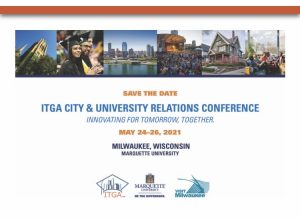
The highlight of the year for any association is the annual conference and as a board member of The International Town and Gown Association (ITGA) it is an event I look forward to with (burger?) relish each year – sadly we were unable to attend in person – hopefully I will get to see Milwaukee one day. The ITGA were ready to deliver an excellent on-line conference and this year they at least had some additional time to plan – 2020 was definitely a pivotal moment to pivot for the association.
At every conference there is always at least one exciting session that inspires and motivates delegates to bring home ideas and designs with a desire to replicate something similar in their own area, or a session that moves the listener to an extent that it leaves a lasting impression and reminds them of the reason our area of work is important – I took two standout take-away’s from the ITGA Conference 2021.
Steve Patterson, Mayor, Athens, Ohio and Cory Peterson, Director Office of Neighborhood Life, Georgetown University delivered a panel session which was the culmination of one of the Town-Gown Turnaround webinar sessions held earlier in the year via ITGA.
A panel of students were drawn together from the U.S., Canada and the U.K.; we were delighted that our very own Manchester students took part in the panel. The discussion highlighted student voices and how they had lived, learned and experienced university both inside and outside the virtual classroom.
The students were very candid and spoke eloquently about how the pandemic had affected them and how they had risen to the challenges of a lack of usual activity – the loss of athletics, leisure, extracurricular activities all featured heavily in this discussion. Students also spoke bravely about how the pandemic had effected their mental health and how they had managed to work through that by, in some cases, reaching out for university support and in other cases relying on peer support.
The testimonies were certainly unembellished and the students were not afraid of speaking their truth when it came to what institutions could have done better. Communications were a recurring theme and whether it was too much or not enough it was a clear call from the student panel that comms may need to recalibrate when trying to reach their intended audience….
The second standout session for me was Colorado State University and the City of Fort Collins who introduced a key civic community curriculum. This wasn’t my first rodeo with Colorado State’s innovative citizenship course – I first heard about it a number of years ago when I was lucky enough to attend an in-person ITGA conference – Emily Allen (outgoing ITGA President) originally designed this pioneering module and I was keen to see how it had developed, particularly through a covid lens.
CityWorksEDU is billed as a dynamic, field trip based, semester long course. The module promises to challenge students to radically participate and partake in self-guided civic experiences while expanding their knowledge of local government models, “Good Neighboring” and help shape government impact on community while making their voices heard. The presenters, who had inherited Emily’s original module design, were left with the task of making it relevant during the pandemic – CSU students were invited to get involved with the local authority’s waste water testing programme in lieu of the usual field trips and visits to city buildings. The outcomes this year were all very positive and assisted the City of Fort Collins to better map covid levels in the area. Despite the challenges that were faced the course remains a popular module for sign up and has a waiting list for participants each year.
We would love to replicate a similar, academically credited model here in Manchester and will be presenting the idea to our senior leaders at the first opportunity. If anyone else out there has managed to do something similar we would love to hear about the challenges and successes that such a programme has brought…get in touch.
Cooper Healey, is Manager of Manchester Student Homes and Chair of The UKTGA. Cooper is also Board Member of the ITGA.
Continuing our work with British Heart Foundation
As many local businesses and charitable organisations are gradually emerging from lockdown restrictions, the University of Exeter is proud to announce that we have begun planning a gradual return to our collaboration with British Heart Foundation.
Donation rates from the student population had been increasing rapidly, with one of the highest donation rates for British Heart foundation in Exeter in 2019. It was therefore a great shame to have to place out collaborations on hold in 2020.
There is still some uncertainty around student movement to and from the city with new travel announcements being updated regularly, but we still aim to promote BHF donations as best as we can during the summer move-out period.
Operations have been scaled back slightly to account for these changes. The frequency of doorstop collections will be reduced, and the number of donation points will be carefully reviewed as student numbers are observed, but we are exploring new ways to promote the importance of giving during these challenging times.
"Students have been donating to BHF for years, particularly during the busy moving out period in the summer, when accommodation is being tidied and cleared prior to moving. The increasing emphasis on upcycling and concerns about the Environment have also fuelled the appetite for donating and helping others in need. We are taking slow steps with our revived BHF collaboration, and we hope other institutions will be encouraged to explore new ways to work with BHF. The UK Town and Gown Association (of with Exeter is a member), is always keen to encourage cross-sector collaboration"
Rory Cunningham, Community Liaison Manager, University of Exeter
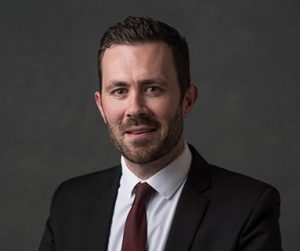
“We have worked in collaboration now with Exeter University since 2014 and over the years our Pack for Good Campaign has grown in range and involvement across the student population and the city.
The benefits gained through all donations received from students, towards the fight against cardiovascular disease and our continuing aim to beat Heartbreak forever through support and cure, cannot be underrated.
As well as this our core beliefs and work around Reuse and sustainability of people’s well-loved items has supported our firm relationship.
The donations from the University student population alone since 2014 has raised to date, just short of £265,000… and saved tons of items from landfill to be loved and reused. We can only see the Campaign developing hand in hand with the University.
After what has been such a challenging year for everyone in 2020; we are ready and raring to go for the months ahead and look forward to fully rebuilding all avenues to further success.”
Tim Reeves, University Account Executive, British Heart Foundation
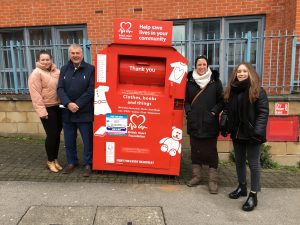
Stay Safe This St. Patrick’s Day - An Update From Queen's University, Belfast
The days may be brightening, but don't forget, as St Patrick's Day approaches, COVID-19 restrictions have been extended in Northern Ireland until April!
Read our advice from Community Engagement on how to keep yourself on the right side of the law.
Save these numbers:
SOS Bus: 07901 505 505
Emergency: 999
PSNI: 101
Noise Team: 02890 373 006
Remember: There are plenty of support services if you need help or advice
Student Wellbeing and advice services
Queen’s University
Tel: 028 9097 2893 (Student Wellbeing)
Email: studentadvice@qub.ac.uk (Advice SU)
Email: su.vpwelfare@qub.ac.uk (SU Welfare Officer)
Student Wellbeing out of hours (Inspire counselling service)
Queen’s University
Tel: 0808 800 0016
Email: qubstudents@inspirewellbeing.org
Other organisations
Samaritans 116 123
Lifeline 0808 808 8000
PSNI Rape Crime Unit 0845 600 8000 (emergency 24hr)
The Rowan 0800 389 4424 (support after sexual abuse, assault or rape)
Nexus 028 9032 6803 (counselling for sexual abuse)
Brook 028 9032 8866 (free sexual health advice and contraception)
Building positive Town and Gown relationships
Encouraged by my Head of Operations, I originally joined UK Town and Gown Association shortly after joining Unite Students in 2016. I didn’t know too much about it before getting involved, but it quickly became clear how important it was to be a part of it. Accommodation is a hugely important part of establishing positive town and gown relationships; it can be a source of friction between students and local residents, and students are also affected by local issues - for example, crime.
As I became more involved, I saw that UKTGA worked hard to equip, empower and enable a diverse network of professionals from universities, student accommodation providers and the cities they operate in, furthering community engagement in doing so. Being a part of this network has helped me to understand the intricacies of town and gown relationships across the UK, and realise that without establishing real partnerships with both universities and city services, it can be difficult to navigate the world of student accommodation.
As the PBSA sector has matured and evolved, so has the importance of ensuring a strong partnership between Unite Students and the UK Town and Gown Association. UKTGA are a brilliant platform from which to gather extra insights on community impacts, be alerted to any developing patterns of local behaviour that might affect our students, and develop further connections that allow us to harness local opportunities and navigate any challenges ahead. My work on the steering group has enabled me to further develop existing relationships and initiate new contacts and partnerships between Unite Students and some of the universities we currently work with.
In today’s world, issues with Covid-19 have resulted in a new set of challenges we have not seen before in town and gown relationships. Only recently, our UKTGA steering group were invited to host a round table session during the virtual CUBO Winter Conference, focusing on challenges and best practice in building trust and confidence with local communities in the age of Covid. A key topic up for discussion was the community implications of student migrations across the UK, and the world as a whole. It was agreed that it is more important than ever to share best practice and ensure that a high level of engagement and true partnership is created between cities’ ‘gown’ bodies - universities and PBSA providers - and ‘town’ ones, including the emergency services and city councils.
The steering group have recently held our 2021 strategy planning day, and are hoping to make this year our most successful yet. Our vision is to be known as a pioneering and professional community of practice in the field of town and gown relationships across the UK, whilst providing opportunities for connection, learning and sharing. We are hoping that we will be able to further support this vision with our annual conference and various webinars which are still to be announced for 2021. Our UKTGA Conference is the primary gathering of officers and practitioners from across the UK and beyond, where sharing best practices is highlighted as the critical function of our organisation.
At Unite Students, our purpose is to create a ‘Home for Success’ for every student living with us, and to achieve this providing a joined-up approach to the student experience. Students’ experience can’t be separated from the local communities in which they live, particularly when it comes to off-campus living, and so being a part of UKTGA enables us to effectively collaborate and ensure local services are working with us to provide that. UKTGA’s purpose - ‘Building communities together’ - also encourages collaborative thinking, and cements the partnership. We are all stronger when we work together.
"Now, hear my point of view" - College student experiences during the Coronavirus pandemic
ITGA has concluded it's two-part "Now, Hear My Point of View" series. The conversation was hosted by Steve Patterson, Mayor of Athens, Ohio, and included five other panellists from the US, the UK, and Canada, including Manchester Student Homes' Archana Chaudhary. The student panellists talked about increased cases of COVID-19 on campuses, how universities are rolling back their already limited in-person instruction, the loss of student organizations and programs, and the toll that loss and isolation has been having on students. To see the recordings, click on the following links: Part 1 Part 2
UKTGA meets with ITGA to discuss town-gown relations during COVID-19
On Wednesday, November 18, 2020, ITGA hosted the United Kingdom Town & Gown Association to discuss managing town-gown relations during the COVID-19 pandemic. The conversation was moderated by Cooper Healey, Manager of Manchester Student Homes on behalf of the University of Manchester and Manchester Metropolitan University; and UKTGA Chair and ITGA Board Member. The panellists discussed best practices for managing town-gown relations during the pandemic, strategies for responding to off-campus communities, and ways they can look ahead and respond to new risks and challenges in the future. More specifically, students returning to universities, managing students living off-campus, COVID-19 regulations, and creating collaborative relationships between universities and their communities. To see the recording, click here.

